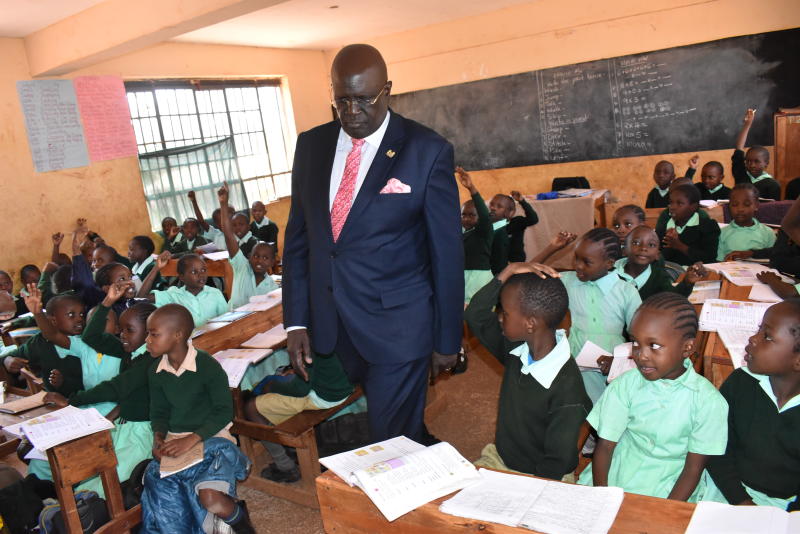×
The Standard e-Paper
Fearless, Trusted News

Education Cabinet Secretary George Magoha looks at a pupil's book in one of the classrooms when he toured Kakamega Primary School last year. [Mumo Munuve, Standard]
Despite the efforts by the Ministry of Education to ensure a smooth institutional transition for Grade Six pupils to junior secondary, fears and questions arise on the psychological and social implications of domiciling prepubescents amongst adolescents and young adults.